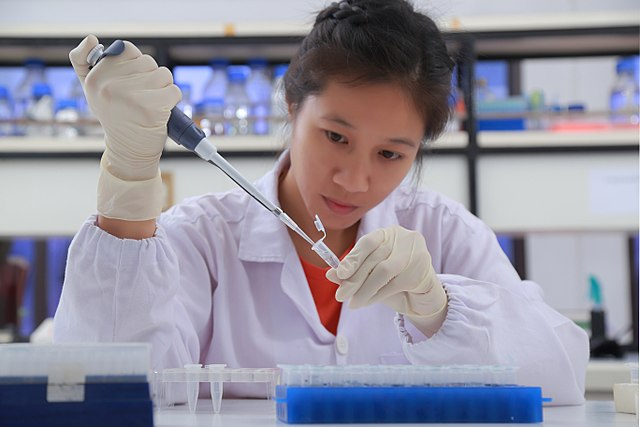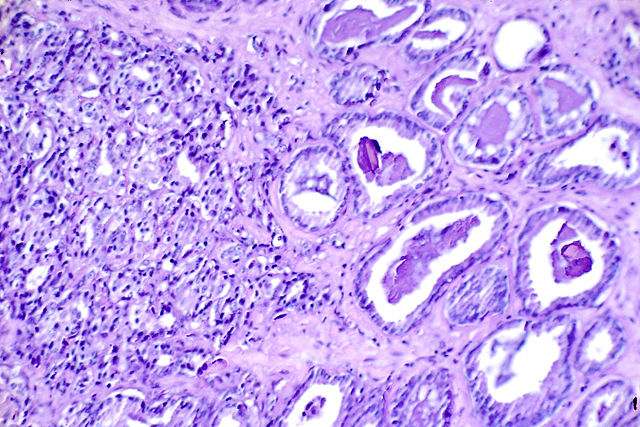A recent discovery by scientists in UK has been lauded as a breakthrough curative for a deadly disease. The study throws light on five species of bacteria associated with aggressive prostate cancer. The European Urology Oncology journal published the study conducted by researchers of University of East Anglia.
A genetic analysis of urine and prostate tissue of roughly 600 men both with and without prostate cancer was conducted as part of the research. Out of the five species of bacteria discovered by the scientists, three were identified for the first time. These species were associated with the 'rapid progression' of the aggressive cancer cells.
The results of the examination made it easy for the researchers to deduce that the freshly discovered bacteria could be a prospective sign of danger, as men with more than one bacteria species in their prostate or tumor tissue were had high chances of developing an advanced form of prostate cancer in comparison to men who did not, a 2.6 times high chance as reported by the Guardian.

Dr. Hayley Luxton of Prostate Cancer UK, which co-funded the research said, "this is an exciting discovery that has the potential to truly revolutionize treatment for men."
According to an Indian newspaper Indian Express, Dr. Anish Kumar Gupta, andrologist, urologist, urological surgeon, and sexologist, explains that, "prostate cancer remains one of the least talked about cancers in the general public, at least in India. Hence there remains a great deal of confusion surrounding this disease as men either have notions of their own, unsubstantiated by medical information, or change the topic or just joke about it."
Lead scientist Colin Cooper, a professor of cancer genetics at the University of East Anglia, states that it might be possible that the bacteria do not play an active role in the disease. A better explanation will be the example of men with more aggressive prostate cancer that might have an immune system deficiency due to which the bacteria can start growing. However, the research findings have led the scientists to strongly believe that the microbes are involved.

Prof. Cooper says, "if you knew for sure that a species of bacteria was causing prostate cancer, you could work out an antibiotic to remove it and that would prevent progression, one would hope. But this is not as straightforward as it sounds, as there are many complications. Antibiotics don't get into the prostate very well and you would need to choose an antibiotic that only kills certain bacteria."
Prof Rosalind Eeles, a cancer geneticist on the study at the Institute of Cancer Research in London, said it was a "very interesting result" to find "novel micro-organisms" in prostate cancer cases. She adds further that, "it is not yet known if they are causative but if this could be proven then we have a potential route for prevention. The way that we may be able to prove this is to look to see if these organisms are never found in prostate samples which have no cancer."
Dr Luxton believes that since there exists no definite approach to identify such aggressive prostate cancers this study could assist in providing the correct treatment for men. He explains, "if the team can demonstrate that these newly identified bacteria can not only predict, but actually cause aggressive prostate cancer, for the first time we may actually be able to prevent prostate cancer occurring. This would be a huge breakthrough that could save thousands of lives each year."









